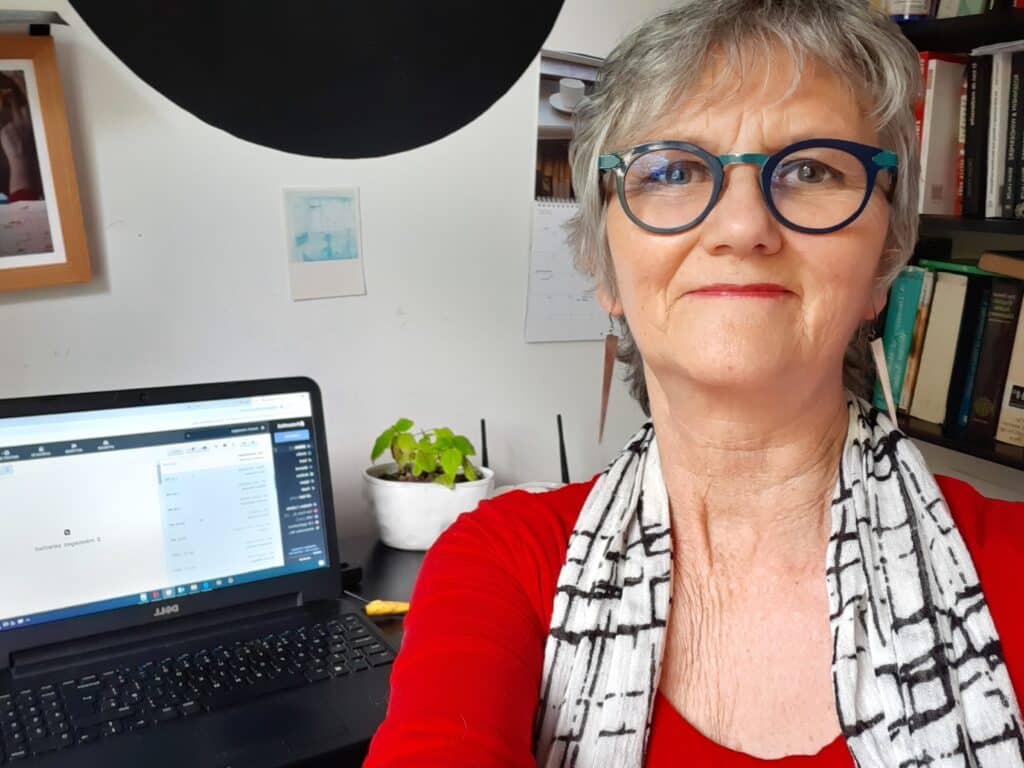
So, it was something of a moving-around type of situation when I was growing up. My father was a diplomat, but I prefer to say that both my parents were diplomats, since the diplomatic spouse works extremely hard also. They worked for Ireland, and for us, their three children, and had a made a decision that wherever they were posted, we would go too, because they couldn’t bear to leave us behind in boarding schools. This was lovely, even though it meant I had to make my way in three different secondary schools, which wasn’t always easy – always the new girl, a bit on the outside – but it did me no harm. On the contrary, it was a rich and varied education, and a privilege, and I made great friends all along the way. Above all, moving from one country to another every few years gave me a lifelong habit, and love, of writing letters, which proved an excellent apprenticeship for a novelist.
I made my arrival in Boston, Mass, in 1958, and remember little about my four years there – apart from some dreamlike memory of Cohasset involving a sunchair. The Boston years were happy ones for my parents – obviously, since that’s where I turned up, the last of three children. From there, we decamped back to our own home in Dublin, where my father was heavily involved in the Kennedy visit to Ireland in 1963 and my mother enjoyed being near to her large family again. Every day, I went off to Montessori in my little yellow smock, and it was here, aged four, that I made my first friend – Bernice, now my oldest and much cherished pal. The house had no heating, money was tight, treats were few, but I was a happy child in a happy place. We moved to Belgium when I was eight, where school was initially terrifying. For one thing, they spoke French, which was awkward of them, but education was also very formal compared to the Sacred Heart in Monkstown, where I had been learning to write between blue and red lines with pencils. On my first day at school in Brussels, I was asked by the teacher if I knew how to use a fountain pen. She stood over me, proffering said fountain pen, surrounded by a huge bunch of girls, who were fascinated by this new oddity in their midst, all waiting for my answer. I looked at the pen, considered my options, and said, ‘Yes.’ It was handed to me. I proceeded to use the nib upside down. Hoots of laughter. Depths of shame. So that didn’t start out too well. We soon moved to another school, where my 5th class teacher found my fledgling Frenchy deeply irritating and – worse – I couldn’t even knit! At nine years of age, little Belgian girls could knit complex jackets for new-born babies, whereas I could just about do plain & purl. That baby jacket tormented me – and my mother, who was very good at knitting – for months, but the school, the FCJs in the city, was wonderful, once I’d escaped above-mentioned teacher. I made great friends and, at home, I had Fabienne. Fabienne and I had watched one another through the fence at the end of our adjoining gardens for quite a time before one of us actually dared to speak. From then on, happiness meant running down to her place after school to have le goûter – bread and chocolate – with Fabienne and her mother. For almost six years, Brussels was home. I didn’t understand it would not be so forever.
Leaving Belgium for Australia in 1971 fairly broke my heart. Leaving Fabienne was the worst of it. I therefore hated Canberra and its brilliant blue skies from the off, and vowed I would return to Brussels to continue my education as soon as my parents allowed it. I was thirteen. My new school was huge. Strict. We had to wear bowler hats and gloves in public, and tights even in the high heat of the Australian summers, but one gifted American nun smoothed the way for me, as did meeting my soul mate, Cathy. Then, at fourteen, I fell in love (an unmentioned convenience for my parents, who did not want me to go to school on the other side of the planet), and it was as delightful and head-whirly as first love should be. He was exceptional, and the longer we were together, the better it worked. Two years later, I left him, and Cath, and my buddies – Alanah, Edda and Megan – having understood at last the meaning of the diplomatic childhood. The Goodbye Life.
Next stop: Rome, where, shortly after arriving, my mother died following a long illness. She would have loved Rome, not least since her brother, poet and diplomat, Denis Devlin, was also posted there in the last years of his life. Three weeks after Mum died, I found myself in a cold, Irish boarding school – the most practical way to finish off my education. Strange times. The other girls spoke so fast I barely understood them, while I had a slow Aussie drawl. I had been out of Ireland for most of my life, so Arklow was as alien to me as a foreign country. I would never quite fit in, but St Mary’s was nonetheless a sanctuary. All I had to do was study, write letters to those I had left behind, and grieve – surrounded by great kindness and warmth. Years later, at a school reunion, I discovered that most of my fellow boarders had no idea at the time that my mother had died only weeks earlier.
Dublin became home. Secretarial college led to jobs, one in University College Dublin Exams Office, which indirectly nudged me into college, where I took a B.A. in English Lit and my new-found love, Arabic. This is when writing came to the fore. I had written all my life – long, chatty letters, dairies, bad poetry, notes to self, but at college I made a decision: I would write novels, and I would set them in the Arab world, which I had yet to see. In my 21st year, my father died, five years after my mum and two years after I had lost my second great love, a young Algerian, also to cancer. With my degree in my fist, I took a job in Baghdad in 1982, where we worked under the grim shadow of Saddam Hussein. Apart from him, I loved Iraq, but I became gravely ill within a few months and found myself shipped back to Dublin, where I spent a month in hospital fighting off hepatitis. Too weakened to return to Iraq, I went instead to work in London, where I met William, my other half these 38 years. After a lovely spell living in Oxford, we came to Cork, and shortly after our move here our first child was born and my first short story won and Irish Times competition. And so I was off: childbearing, childminding and writing: a novel I’d been planning for years. I wrote lots of stuff until at some point I decided it was time to stop writing and to start looking for an agent. Instead, I wrote another novel – a story about grief, a subject I knew too well. With this book, I secured an agent, but it was the earlier novel that brought my first publishing deal. In 2002, Overnight to Innsbruck was published by the Lilliput Press and The Catalpa Tree followed in 2004, published by Penguin Ireland. Suddenly I was two writers – Denyse Woods and Denyse Devlin. Head and heart, some say.
And so I go on, in this writer’s life, here in Ireland, where I keep my soul. It’s a peculiar way to make a living, insofar as making a living from books is a challenge for most writers, but the itch doesn’t go away even when you scratch it. I also love to organise and administrate, and so I hugely enjoyed my role as Director of the West Cork Literary Festival (books AND organizing!) but my fingertips tingled and characters clamoured to be let out of the filing cabinet inside my head, so I returned to full-time writing. My sixth novel, Of Sea and Sand was published in 2018 by Hoopoe Fiction.
Onwards.
Denyse Woods Cork 2022
